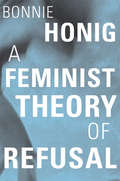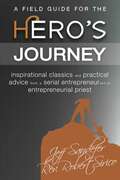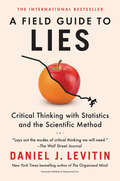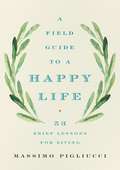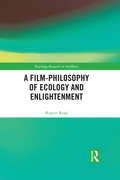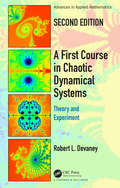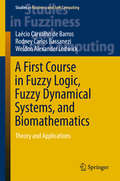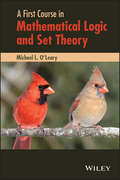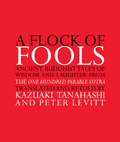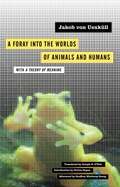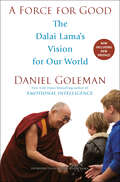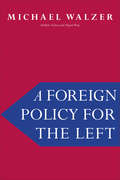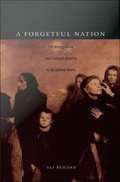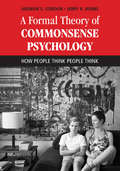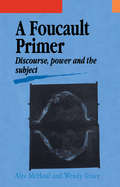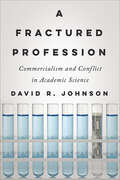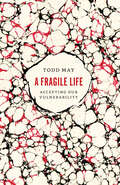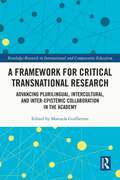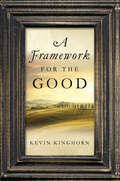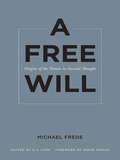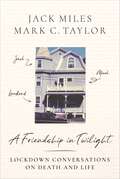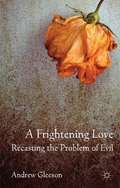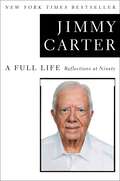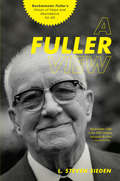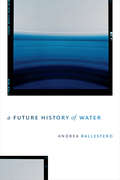- Table View
- List View
A Feminist Theory of Refusal
by Bonnie HonigAn acclaimed political theorist offers a fresh, interdisciplinary analysis of the politics of refusal, highlighting the promise of a feminist politics that does not simply withdraw from the status quo but also transforms it. The Bacchae, Euripides’s fifth-century tragedy, famously depicts the wine god Dionysus and the women who follow him as indolent, drunken, mad. But Bonnie Honig sees the women differently. They reject work, not out of laziness, but because they have had enough of women’s routine obedience. Later they escape prison, leave the city of Thebes, explore alternative lifestyles, kill the king, and then return to claim the city. Their “arc of refusal,” Honig argues, can inspire a new feminist politics of refusal. Refusal, the withdrawal from unjust political and economic systems, is a key theme in political philosophy. Its best-known literary avatar is Herman Melville’s Bartleby, whose response to every request is, “I prefer not to.” A feminist politics of refusal, by contrast, cannot simply decline to participate in the machinations of power. Honig argues that a feminist refusal aims at transformation and, ultimately, self-governance. Withdrawal is a first step, not the end game. Rethinking the concepts of refusal in the work of Giorgio Agamben, Adriana Cavarero, and Saidiya Hartman, Honig places collective efforts toward self-governance at refusal’s core and, in doing so, invigorates discourse on civil and uncivil disobedience. She seeks new protagonists in film, art, and in historical and fictional figures including Sophocles’s Antigone, Ovid’s Procne, Charlie Chaplin’s Tramp, Leonardo da Vinci’s Madonna, and Muhammad Ali. Rather than decline the corruptions of politics, these agents of refusal join the women of Thebes first in saying no and then in risking to undertake transformative action.
A Field Guide for the Hero's Journey
by Jeff Sandefer Rev Robert A. SiricoDo you feel like something big is missing from your life? Do you feel trapped, bored, stuck in a meaningless routine? It may be you think you’re too ordinary to ever do something special. Perhaps you’re afraid that if you try, you’ll fail. <p><p>The startling truth is this: Just about anyone can do great things, can live a life that’s remarkable, purposeful, excellent, and yes, even heroic. If you want to be a hero, you can be. How?That’s what this book is all about. <p><p>Will you choose to do it? Will you decide to journey heroically, instead of spending your life merely marking time? If so, this is the book for you. Welcome to your heroic journey.
A Field Guide to Lies: Critical Thinking in the Information Age
by Daniel J. LevitinWinner of the Mavis Gallant Prize for Non-FictionWinner of the 2017 National Business Book AwardShortlisted for the 2016/2017 Donner PrizeFrom the bestselling author of The Organized Mind, the must-have book about how to analyze who and what to trust in the age of information overload. It's becoming harder to separate the wheat from the digital chaff. How do we distinguish misinformation, pseudo-facts, distortions and outright lies from reliable information? In A Field Guide to Lies, neuroscientist Daniel Levitin outlines the many pitfalls of the information age and provides the means to spot and avoid them. Levitin groups his field guide into two categories--statistical infomation and faulty arguments--ultimately showing how science is the bedrock of critical thinking. It is easy to lie with stats and graphs as few people "take the time to look under the hood and see how they work." And, just because there's a number on something, doesn't mean that the number was arrived at properly. Logic can help to evaluate whether or not a chain of reasoning is valid. And "infoliteracy" teaches us that not all sources of information are equal, and that biases can distort data. Faced with a world too eager to flood us with information, the best response is to be prepared. A Field Guide to Lies helps us avoid learning a lot of things that aren't true.
A Field Guide to a Happy Life: 53 Brief Lessons for Living
by Massimo PigliucciA brilliant philosopher reimagines Stoicism for our modern age in this thought-provoking guide to a better life.For more than two thousand years, Stoicism has offered a message of resilience in the face of hardship. Little wonder, then, that it is having such a revival in our own troubled times. But there is no denying how weird it can be: Is it really the case that we shouldn't care about our work, our loved ones, or our own lives? According to the old Stoics, yes.In A Field Guide to a Happy Life, philosopher Massimo Pigliucci offers a renewed Stoicism that reflects modern science and sensibilities. Pigliucci embraces the joyful bonds of affection, the satisfactions of a job well done, and the grief that attends loss. In his hands, Stoicism isn't about feats of indifference, but about enduring pain without being overwhelmed, while enjoying pleasures without losing our heads. In short, he makes Stoicism into a philosophy all of us -- whether committed Stoics or simply seekers -- can use to live better.
A Film-Philosophy of Ecology and Enlightenment (Routledge Research in Aesthetics)
by Rupert ReadInspired by the philosophy of Wittgenstein and his idea that the purpose of real philosophical thinking is not to discover something new, but to show in a strikingly different light what is already there, this book provides philosophical readings of a number of ‘arthouse’ and Hollywood films. Each chapter contains a discussion of two films—one explored in greater detail and the other analyzed as a minor key which reveals the possibility for the book's ideas to be applied across different films, registers, and genres. The readings are not only interpretive, but they offer a way of thinking and feeling about, with, and through films which is genuinely transformative. Rupert Read’s main contention is that certain films can bring about a change in how we see the world. He advocates an ecological approach to film-philosophy analysis, arguing that film can re-shape the viewer’s relationship to the environment and other living beings. The transformative 'wake-up call' of these films is enlightenment in its true sense. The result is a book that ambitiously aims to change, though film, how we think of ourselves and our place in the world, at a time when such change is more needed than ever before.
A First Course In Chaotic Dynamical Systems: Theory And Experiment
by Robert L. DevaneyA First Course in Chaotic Dynamical Systems: Theory and Experiment, Second Edition The long-anticipated revision of this well-liked textbook offers many new additions. In the twenty-five years since the original version of this book was published, much has happened in dynamical systems. Mandelbrot and Julia sets were barely ten years old when the first edition appeared, and most of the research involving these objects then centered around iterations of quadratic functions. This research has expanded to include all sorts of different types of functions, including higher-degree polynomials, rational maps, exponential and trigonometric functions, and many others. Several new sections in this edition are devoted to these topics. The area of dynamical systems covered in A First Course in Chaotic Dynamical Systems: Theory and Experiment, Second Edition is quite accessible to students and also offers a wide variety of interesting open questions for students at the undergraduate level to pursue. The only prerequisite for students is a one-year calculus course (no differential equations required); students will easily be exposed to many interesting areas of current research. This course can also serve as a bridge between the low-level, often non-rigorous calculus courses, and the more demanding higher-level mathematics courses. Features More extensive coverage of fractals, including objects like the Sierpinski carpet and othersthat appear as Julia sets in the later sections on complex dynamics, as well as an actualchaos "game." More detailed coverage of complex dynamical systems like the quadratic familyand the exponential maps. New sections on other complex dynamical systems like rational maps. A number of new and expanded computer experiments for students to perform. About the Author Robert L. Devaney is currently professor of mathematics at Boston University. He received his PhD from the University of California at Berkeley under the direction of Stephen Smale. He taught at Northwestern University and Tufts University before coming to Boston University in 1980. His main area of research is dynamical systems, primarily complex analytic dynamics, but also including more general ideas about chaotic dynamical systems. Lately, he has become intrigued with the incredibly rich topological aspects of dynamics, including such things as indecomposable continua, Sierpinski curves, and Cantor bouquets.
A First Course in Fuzzy Logic, Fuzzy Dynamical Systems, and Biomathematics: Theory and Applications (Studies in Fuzziness and Soft Computing #347)
by Laécio Carvalho de Barros Rodney Carlos Bassanezi Weldon Alexander LodwickThis book provides an essential introduction to the field of dynamical models. Starting from classical theories such as set theory and probability, it allows readers to draw near to the fuzzy case. On one hand, the book equips readers with a fundamental understanding of the theoretical underpinnings of fuzzy sets and fuzzy dynamical systems. On the other, it demonstrates how these theories are used to solve modeling problems in biomathematics, and presents existing derivatives and integrals applied to the context of fuzzy functions. Each of the major topics is accompanied by examples, worked-out exercises, and exercises to be completed. Moreover, many applications to real problems are presented. The book has been developed on the basis of the authors' lectures to university students and is accordingly primarily intended as a textbook for both upper-level undergraduates and graduates in applied mathematics, statistics, and engineering. It also offers a valuable resource for practitioners such as mathematical consultants and modelers, and for researchers alike, as it may provide both groups with new ideas and inspirations for projects in the fields of fuzzy logic and biomathematics.
A First Course in Mathematical Logic and Set Theory
by Michael L. O'LearyA mathematical introduction to the theory and applications of logic and set theory with an emphasis on writing proofs Highlighting the applications and notations of basic mathematical concepts within the framework of logic and set theory, A First Course in Mathematical Logic and Set Theory introduces how logic is used to prepare and structure proofs and solve more complex problems. The book begins with propositional logic, including two-column proofs and truth table applications, followed by first-order logic, which provides the structure for writing mathematical proofs. Set theory is then introduced and serves as the basis for defining relations, functions, numbers, mathematical induction, ordinals, and cardinals. The book concludes with a primer on basic model theory with applications to abstract algebra. A First Course in Mathematical Logic and Set Theory also includes: Section exercises designed to show the interactions between topics and reinforce the presented ideas and concepts Numerous examples that illustrate theorems and employ basic concepts such as Euclid's lemma, the Fibonacci sequence, and unique factorization Coverage of important theorems including the well-ordering theorem, completeness theorem, compactness theorem, as well as the theorems of Löwenheim-Skolem, Burali-Forti, Hartogs, Cantor-Schröder-Bernstein, and König An excellent textbook for students studying the foundations of mathematics and mathematical proofs, A First Course in Mathematical Logic and Set Theory is also appropriate for readers preparing for careers in mathematics education or computer science. In addition, the book is ideal for introductory courses on mathematical logic and/or set theory and appropriate for upper-undergraduate transition courses with rigorous mathematical reasoning involving algebra, number theory, or analysis.
A Flock of Fools: Ancient Buddhist Tales of Wisdom and Laughter from the One Hundred Parable Sutra (Books That Changed the World)
by Peter Levitt Kazuaki Tanahashi&“These teachings from the heart of Buddhism ring true . . . a sumptuous meal of wild and comic dharma. Enjoy!&” (Enkyō O&’Hara, Soto priest and teacher). One hundred illuminating tales of the foibles and follies of everyday fools, this elegant, humorous, and masterful little book of wisdom is a welcome addition to the Buddhist canon. &“The One Hundred Parable Sutra&” is known as the most humorous sutra in all of Buddhist literature. Here, Kazuaki Tanahashi, the celebrated translator, calligrapher, and Dōgen scholar, and Peter Levitt, an award-winning poet, storyteller, and Zen practitioner, have translated and retold these jewel-like parables with storytelling panache for students, teachers, and seekers everywhere. With appropriate commentary, each tale becomes a simple lesson for everyday living. From the potter who seeks fame to the woman who possesses great lust, these tales are told with a gentle clarity that magnifies our appetites and delusions. In doing so, they become an accurate mirror of the human condition. Illustrated with seventeen original brushwork drawings by Tanahashi, A Flock of Fools is a perfect little book of wisdom, laughter, and compassion. &“Translator Kaz Tanahashi and storyteller Peter Levitt have given these stories a subtle American-Zen flavor, and although this collection has a 1500-year pedigree . . . its messages ring clear and true today.&” —Shambala Sun &“Funny, strange, wise, informing, this marvelous book celebrates the wild heart of Buddhism.&” —Roshi Joan Halifax, Zen Buddhist teacher &“Nothing breaks apart dualism and sanctimoniousness like a good laugh! . . . lively reminders of the power of humor to enrich our understanding, and to help us let go of our attachments.&” — Enkyō O&’Hara, Soto priest and teacher
A Foray into the Worlds of Animals and Humans: with A Theory of Meaning (Posthumanities #12)
by Jakob von Uexküll&“Is the tick a machine or a machine operator? Is it a mere object or a subject?&” With these questions, the pioneering biophilosopher Jakob von Uexküll embarks on a remarkable exploration of the unique social and physical environments that individual animal species, as well as individuals within species, build and inhabit. This concept of the umwelt has become enormously important within posthumanist philosophy, influencing such figures as Heidegger, Merleau-Ponty, Deleuze and Guattari, and, most recently, Giorgio Agamben, who has called Uexküll &“a high point of modern antihumanism.&” A key document in the genealogy of posthumanist thought, A Foray into the Worlds of Animals and Humans advances Uexküll&’s revolutionary belief that nonhuman perceptions must be accounted for in any biology worth its name; it also contains his arguments against natural selection as an adequate explanation for the present orientation of a species&’ morphology and behavior. A Theory of Meaning extends his thinking on the umwelt, while also identifying an overarching and perceptible unity in nature. Those coming to Uexküll&’s work for the first time will find that his concept of the umwelt holds new possibilities for the terms of animality, life, and the framework of biopolitics.
A Force for Good: The Dalai Lama's Vision for Our World
by Daniel GolemanThe Dalai Lama and the New York Times bestselling author of Emotional Intelligence present a revelatory and inspiring work that provides a singular vision for transforming the world in practical and positive ways.&“An optimistic and thoughtful primer with practical applications.&”—BooklistFor more than half a century, the Dalai Lama has guided us along the path to compassion and taught us how to improve our inner lives. A Force for Good combines his central concepts, empirical evidence that supports them, and true stories of people who are putting his ideas into action—showing how harnessing positive energies and directing them outward has lasting and meaningful effects. Daniel Goleman details the science of compassion and how this singular guiding motivation has the power to:• break such destructive social forces as corruption, collusion, and bias• heal the planet • reverse the tendency toward systemic inequity • replace violence with dialogue• counter us-and-them thinking • create new economic systems that work for everyone• design schooling that teaches empathy, self-mastery, and ethicsPoignant, motivating, and highly persuasive, A Force for Good shows how every compassion-driven human act—no matter how small—is integral for a more peaceful, harmonious world.
A Foreign Policy for the Left
by Michael WalzerSomething that has been needed for decades: a leftist foreign policy with a clear moral basis Foreign policy, for leftists, used to be relatively simple. They were for the breakdown of capitalism and its replacement with a centrally planned economy. They were for the workers against the moneyed interests and for colonized peoples against imperial (Western) powers. But these easy substitutes for thought are becoming increasingly difficult. Neo-liberal capitalism is triumphant, and the workers’ movement is in radical decline. National liberation movements have produced new oppressions. A reflexive anti-imperialist politics can turn leftists into apologists for morally abhorrent groups. In Michael Walzer’s view, the left can no longer (in fact, could never) take automatic positions but must proceed from clearly articulated moral principles. In this book, adapted from essays published in Dissent, Walzer asks how leftists should think about the international scene—about humanitarian intervention and world government, about global inequality and religious extremism—in light of a coherent set of underlying political values.
A Forgetful Nation: On Immigration and Cultural Identity in the United States
by Ali BehdadIn A Forgetful Nation, the renowned postcolonialism scholar Ali Behdad turns his attention to the United States. Offering a timely critique of immigration and nationalism, Behdad takes on an idea central to American national mythology: that the United States is "a nation of immigrants," welcoming and generous to foreigners. He argues that Americans' treatment of immigrants and foreigners has long fluctuated between hospitality and hostility, and that this deep-seated ambivalence is fundamental to the construction of national identity. Building on the insights of Freud, Nietzsche, Foucault, and Derrida, he develops a theory of the historical amnesia that enables the United States to disavow a past and present built on the exclusion of others. Behdad shows how political, cultural, and legal texts have articulated American anxiety about immigration from the Federalist period to the present day. He reads texts both well-known--J. Hector St. John de Crvecoeur's Letters from an American Farmer, Alexis de Tocqueville's Democracy in America, and Walt Whitman's Leaves of Grass--and lesser-known--such as the writings of nineteenth-century nativists and of public health officials at Ellis Island. In the process, he highlights what is obscured by narratives and texts celebrating the United States as an open-armed haven for everyone: the country's violent beginnings, including its conquest of Native Americans, brutal exploitation of enslaved Africans, and colonialist annexation of French and Mexican territories; a recurring and fierce strand of nativism; the need for a docile labor force; and the harsh discipline meted out to immigrant "aliens" today, particularly along the Mexican border.
A Formal Theory of Commonsense Psychology: How People Think People Think
by Andrew S. Gordon Jerry R. HobbsCommonsense psychology refers to the implicit theories that we all use to make sense of people's behavior in terms of their beliefs, goals, plans, and emotions. These are also the theories we employ when we anthropomorphize complex machines and computers as if they had humanlike mental lives. In order to successfully cooperate and communicate with people, these theories will need to be represented explicitly in future artificial intelligence systems. This book provides a large-scale logical formalization of commonsense psychology in support of humanlike artificial intelligence. It uses formal logic to encode the deep lexical semantics of the full breadth of psychological words and phrases, providing fourteen hundred axioms of first-order logic organized into twenty-nine commonsense psychology theories and sixteen background theories. This in-depth exploration of human commonsense reasoning for artificial intelligence researchers, linguists, and cognitive and social psychologists will serve as a foundation for the development of humanlike artificial intelligence.
A Foucault Primer: Discourse, Power And The Subject (Interpretations Ser.)
by Alec McHoul Wendy GraceWho are we today? That deceptively simple question continued to be asked by the French historian and philosopher, Michel Foucault, who for the last three decades has had a profound influence on English-speaking scholars in the humanities and social sciences.; This text is designed for undergraduates and others who feel in need of some assistance when coming to grips with Foucault's voluminous and complex writings. Instead of dealing with them chronologically, however, this book concentrates on some of their central concepts, primarily Foucault's rethinking of the categories of "discourse", "power", and " the subject".; Foucault's writings contribute collectively to what he himself calls "an ontology of the present". His historical research was always geared towards showing how things could have been and still could be otherwise. This is especially the case with respect to the production of human subjects.
A Fractured Profession: Commercialism and Conflict in Academic Science (Critical University Studies)
by David R. JohnsonExploring the growing division among academic scientists over a profit motive in research.The commercialization of research is one of the most significant contemporary features of US higher education, yet we know surprisingly little about how scientists perceive and experience commercial rewards. A Fractured Profession is the first book to systematically examine the implications of commercialization for both universities and faculty members from the perspective of academic scientists. Drawing on richly detailed interviews with sixty-one scientists at four universities across the United States, sociologist David R. Johnson explores how an ideology of commercialism produces intraprofessional conflict in academia.The words of scientists themselves reveal competing constructions of status, conflicting norms, and divergent career paths and professional identities. Commercialist scientists embrace a professional ideology that emphasizes the creation of technologies that control societal uncertainties and advancing knowledge toward particular—and financial—ends. Traditionalist scientists, on the other hand, often find themselves embattled and threatened by university and federal emphasis on commercialization. They are less concerned about issues such as conflicts of interest and corruption than they are about unequal rewards, unequal conditions of work, and conflicts of commitment to university roles and basic science.Arguing that the division between commercialists and traditionalists represents a new form of inequality in the academic profession, this book offers an incisive look into the changing conditions of work in an era of academic capitalism. Focusing on how the profit motive is reshaping higher education and redefining what faculty are supposed to do, this book will appeal to scientists and academics, higher education scholars, university administrators and policy makers, and students considering a career in science.
A Fragile Life: Accepting Our Vulnerability
by Todd MayIt is perhaps our noblest cause, and certainly one of our oldest: to end suffering. Think of the Buddha, Chuang Tzu, or Marcus Aurelius: stoically composed figures impervious to the torments of the wider world, living their lives in complete serenity—and teaching us how to do the same. After all, isn’t a life free from suffering the ideal? Isn’t it what so many of us seek? Absolutely not, argues Todd May in this provocative but compassionate book. In a moving examination of life and the trials that beset it, he shows that our fragility, our ability to suffer, is actually one of the most important aspects of our humanity. May starts with a simple but hard truth: suffering is inevitable. At the most basic level, we suffer physically—a sprained ankle or a bad back. But we also suffer insults and indifference. We suffer from overburdened schedules and unforeseen circumstances, from moral dilemmas and emotional heartaches. Even just thinking about our own mortality—the fact that we only live one life—can lead us to tremendous suffering. No wonder philosophies such as Buddhism, Taosim, Stoicism, and even Epicureanism—all of which counsel us to rise above these plights—have had appeal over the centuries. May highlights the tremendous value of these philosophies and the ways they can guide us toward better lives, but he also exposes a major drawback to their tenets: such invulnerability is too emotionally disengaged from the world, leading us to place too great a distance between ourselves and our experience. Rather than seeking absolute immunity, he argues most of us just want to hurt less and learn how to embrace and accept what suffering we do endure in a meaningful way. Offering a guide on how to positively engage suffering, May ultimately lays out a new way of thinking about how we exist in the world, one that reassures us that our suffering, rather than a failure of physical or psychological resilience, is a powerful and essential part of life itself.
A Framework for Critical Transnational Research: Advancing Plurilingual, Intercultural, and Inter-epistemic Collaboration in the Academy (Routledge Research in International and Comparative Education)
by Manuela GuilhermeBy foregrounding successful transnational research projects conducted across Latin America and Europe, this edited collection contests epistemological hegemony and heterogeneity in the academy and highlights feasible models for research cooperation across diverse languages, cultures, and epistemologies. Chapters focus on the practical and theoretical tenets of responsible intra-national research and propose the "Glocacademia" framework as a means of enhancing critical reflection on issues that can inhibit plurilingual, intercultural, and inter-epistemic research. The text offers key recommendations to support institutions and researchers to develop intercultural awareness, multi-level citizenship, and a readiness to embrace diverse knowledge ecologies. The book builds on existing discussions on multiculturalism, interculturality, and transculturality to offer high academic value to the discussion of higher education and research. Offering important contributions to the study of global academic research, this volume will be of interest to scholars and researchers with an interest in international and comparative education, as well as multicultural studies in education research.
A Framework for the Good
by Kevin KinghornThis book provides an ethical framework for understanding the good and how we can experience it in increasing measure. In Part 1, Kevin Kinghorn offers a formal analysis of the meaning of the term "good," the nature of goodness, and why we are motivated to pursue it. Setting this analysis within a larger ethical framework, Kinghorn proposes a way of understanding where noninstrumental value lies, the source of normativity, and the relationship between the good and the right. Kinghorn defends a welfarist conception of the good along with the view that mental states alone directly affect a person's well-being. He endorses a Humean account of motivation—in which desires alone motivate us, not moral beliefs—to explain the source of the normative pressure we feel to do the good and the right. Turning to the place of objectivity within ethics, he concludes that the concept of "objective wrongness" is a misguided one, although a robust account of "objective goodness" is still possible. In Part 2, Kinghorn shifts to a substantive, Christian account of what the good life consists in as well as how we can achieve it. Hume's emphasis of desire over reason is not challenged but rather endorsed as a way of understanding both the human capacity for choice and the means by which God prompts us to pursue relationships of benevolence, in which our ultimate flourishing consists.
A Free Will
by David Sedley Michael Frede A. A. LongWhere does the notion of free will come from? How and when did it develop, and what did that development involve? In Michael Frede's radically new account of the history of this idea, the notion of a free will emerged from powerful assumptions about the relation between divine providence, correctness of individual choice, and self-enslavement due to incorrect choice. Anchoring his discussion in Stoicism, Frede begins with Aristotle--who, he argues, had no notion of a free will--and ends with Augustine. Frede shows that Augustine, far from originating the idea (as is often claimed), derived most of his thinking about it from the Stoicism developed by Epictetus.
A Friendship in Twilight: Lockdown Conversations on Death and Life
by Jack Miles Mark C. TaylorIn a time of plague, fundamental questions become immediate and personal. The pandemic, droughts, floods, fire, political violence: the world has been grimly reminded of the proximity and inevitability of death. Jack Miles and Mark C. Taylor—acclaimed public intellectuals and scholars of religion, one a Christian and the other an atheist, close friends for fifty years—have spent their lives grappling with questions of ultimate concern. At the onset of the COVID-19 pandemic, locked down at home and facing an uncertain future, Miles and Taylor embarked on an extended conversation about living and dying in an imperiled world.A Friendship in Twilight is their plague journal. In raw and searching letters, written daily from the first lockdowns through the Capitol riot, Miles and Taylor reflect on life during overlapping crises. Amid the menace of the pandemic and the unceasing political turmoil, they debate the lessons that a catastrophic present can teach about the future and how to read, think, live, and face up to death. Confronting the vulnerability of their aging bodies and the frailty of American democracy, the two friends discuss why and how philosophical reflection matters for a wounded world. Their conversations are imbued with an ever-present sense of urgency about the worth of a life, the fragility of existence, and the uncertainty of endings. Seamlessly moving from heartfelt emotion to philosophical speculation, current events to great art and literature, this book is a powerful and moving testament to the precarity of life and to enduring friendship.
A Frightening Love: Recasting the Problem of Evil
by Andrew GleesonA Frightening Love radically rethinks God and evil. It rejects theodicy and its impersonal conception of reason and morality. Faith survives evil through a miraculous love that resists philosophical rationalization. Authors criticised include Alvin Plantinga, Richard Swinburne, Marilyn McCord Adams, Peter van Inwagen, John Haldane, William Hasker.
A Full Life: Reflections at Ninety
by Jimmy CarterIn his major New York Times bestseller, Jimmy Carter looks back from ninety years of age and “reveals private thoughts and recollections over a fascinating career as businessman, politician, evangelist, and humanitarian” (Booklist).At ninety, Jimmy Carter reflects on his public and private life with a frankness that is disarming. He adds detail and emotion about his youth in rural Georgia that he described in his magnificent An Hour Before Daylight. He writes about racism and the isolation of the Carters. He describes the brutality of the hazing regimen at Annapolis, and how he nearly lost his life twice serving on submarines and his amazing interview with Admiral Rickover. He describes the profound influence his mother had on him, and how he admired his father even though he didn’t emulate him. He admits that he decided to quit the Navy and later enter politics without consulting his wife, Rosalynn, and how appalled he is in retrospect. In his “warm and detailed memoir” (Los Angeles Times), Carter tells what he is proud of and what he might do differently. He discusses his regret at losing his re-election, but how he and Rosalynn pushed on and made a new life and second and third rewarding careers. He is frank about the presidents who have succeeded him, world leaders, and his passions for the causes he cares most about, particularly the condition of women and the deprived people of the developing world. “Always warm and human…even inspirational” (Buffalo News), A Full Life is a wise and moving look back from this remarkable man. Jimmy Carter has lived one of our great American lives—from rural obscurity to world fame, universal respect, and contentment. A Full Life is an extraordinary read from a “force to be reckoned with” (Christian Science Monitor).
A Fuller View
by L. Steven SiedenKnown as a "Leonardo da Vinci of the twentieth century," engineer, designer, inventor, and futurist Dr. R. Buckminster "Bucky" Fuller had a keen awareness that we're all in this together. Understanding that humans don't have aclue about how to operate our fragile Spaceship Earth, Buckminster provided insightful design science solutions to our most challenging issues, including war, overpopulation, housing, increasing inflation, health care, the energy crisis, and much more. For all its genius, Fuller's legacy has yet to be fully discovered. Noted Fuller expert L. Steven Sieden together with Gary Zukav, John Robbins, Lynne Twist, Jean Houston, and many other notable individuals offer inspiring quotations and explanations that make Fuller's life more understandable and accessible. They preserve a voice that calls upon each of us to shift our intellectual and technological resources from creating weaponry to creating sustainability.Winner 2013 COVR award - Gold
A Future History of Water
by Andrea BallesteroBased on fieldwork among state officials, NGOs, politicians, and activists in Costa Rica and Brazil, A Future History of Water traces the unspectacular work necessary to make water access a human right and a human right something different from a commodity. Andrea Ballestero shows how these ephemeral distinctions are made through four technolegal devices—formula, index, list and pact. She argues that what is at stake in these devices is not the making of a distinct future but what counts as the future in the first place. A Future History of Water is an ethnographically rich and conceptually charged journey into ant-filled water meters, fantastical water taxonomies, promises captured on slips of paper, and statistical maneuvers that dissolve the human of human rights. Ultimately, Ballestero demonstrates what happens when instead of trying to fix its meaning, we make water’s changing form the precondition of our analyses.
